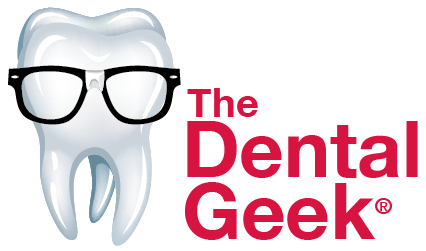Linking Oral Health and Cardiovascular Health
We try and take care of ourselves, right? You get a good night’s sleep to take care of your brain. You watch your cholesterol to take care of your heart, and you stay away from cigarettes to take care of your lungs. As a dental professional you’re looking out for your patients, too. You stress how important brushing and flossing are for oral health. However, telling your patients to brush and floss will help more than just their oral health: they’ll be taking care of their mouth, heart and brain all at once.
Recent studies and healthcare blogs have highlighted periodontal disease’s association with other serious illnesses such as heart disease and diabetes. There’s a divided stance among experts, though. While there is a good deal of research and coverage from reputable sources like the Harvard Health Blog and the American Journal of Preventive Medicine that conveys periodontal disease’s relation to other diseases, no decisive causal link between periodontal disease and things like heart disease has been established. The lack of this cause-and-effect link makes other experts question periodontal disease’s association with these diseases.
Even if there’s no total causal link as of yet, there’s more than enough correlation to tell your patients that keeping their teeth and gums healthy will keep the rest of their body healthy as well. In my opinion, out of all the research done on the subject, the most convincing arguments come from linking periodontal disease to heart disease.
So, what are the common threads between periodontal disease and heart disease? Recent advances in research on the subject show that inflammation is likely responsible for the association. Sally Cram, DDS, in an interview with WebMD says, “[researchers are] finding the role of inflammation in the body is very critical to a lot of these different diseases, and that’s essentially what gum disease is: infection and inflammation in the oral cavity.”
Inflammation is especially evident in heart disease. Robert Bonow, MD, chief of Cardiology at Northwestern University’s Feinberg School of Medicine says that the hardening of arteries “has a strong component of inflammation. Much of the progression of plaque [building up in the arteries] is actually an inflammatory process.” We can see how this process is quite similar to gingivitis, where the gums become inflamed and bacteria take over the mouth.
Additionally, people who have moderate to severe gum disease have much higher levels of
C-reactive protein (CRP). CRP rises during whole-body inflammation, and CRP levels are also used as a way to determine an individual’s risk of having a heart attack.
Bacteria are another common thread between periodontal disease and heart disease. The spread of bacteria throughout the body often leads to inflammation, but bacteria links the two diseases on its own: Periodontal disease becomes more severe as one’s gum pocket depth increases, and as gum pocket depth increases the risk of bacteria entering the bloodstream increases. In certain cases of advanced periodontal disease where the patient has a gum pocket depth of 5mm or more, that same bacteria that have entered the bloodstream through the gums have been found mixed in with artery plaques.
At the very least, this find validates using the presence of periodontal disease as an early sign of heart disease. Many of the conditions that precede heart disease have little to no observable symptoms. You won’t be able to sense your cholesterol levels rising but you can observe an increase in gum pocket depth and other telltale signs of periodontal disease.
At the end of the day, we still have that divided stance and lack of consensus on periodontal disease’s link to other systemic diseases. However, the research we have linking periodontal disease and heart disease is more than a compelling reason to tell your patients to brush and floss for their heart’s sake as well. After all, that patient who’s reluctant to floss might get started once they see how it could keep them from having a heart attack.

I started to floss late in life ( in my late 20’s ) poor choice. Alas, we will always have a choice. Thank you for this informative article and reminder of how we can do something to maintain a happy,healthy,smiling future.